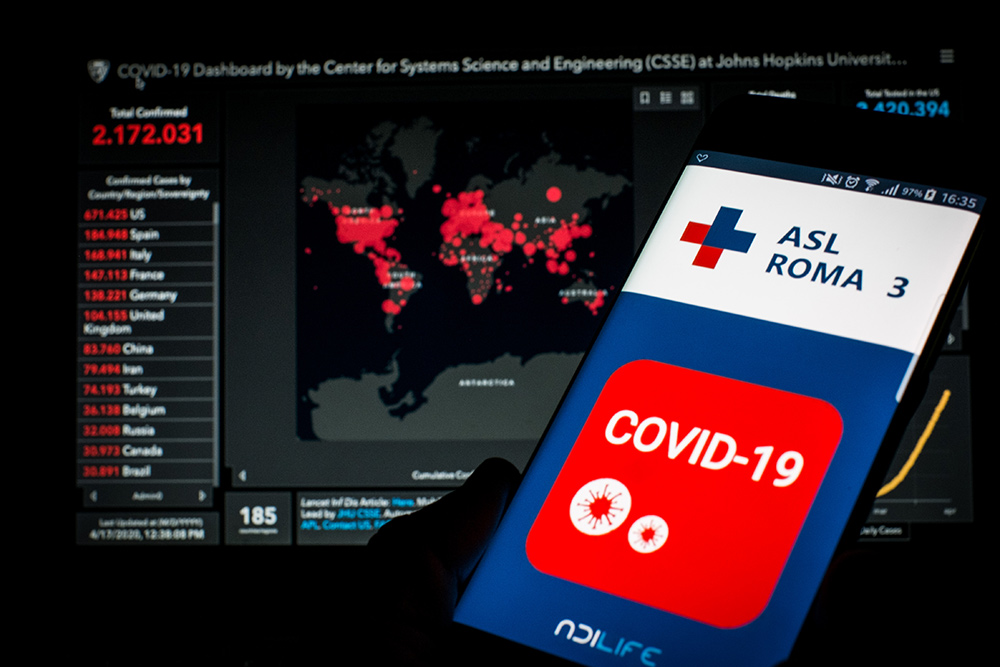
为了拯救欧洲价值2万亿美元的旅游市场,欧盟敦促各成员国尽快实现新冠肺炎接触追踪应用程序的互联互通。
为了遏制新冠疫情蔓延,欧洲各国政府在3月就迅速关闭了各自边境,当前获准在欧洲各国间开展的非必要跨境旅行屈指可数。
旅行限制给旅游业造成了严重冲击,西班牙、希腊等国的经济也遭受重创。德国旅游业巨头途易集团(TUI)在上周三宣布,公司将大幅裁员8,000人,这也是新冠疫情造成的最新一起裁员风波。
当前,欧盟委员会正试图促使各国开放边境,恢复到疫情爆发之前的状态。在边境管理方面,欧盟行政部门无权对各成员国发号施令,包括德国、奥地利在内的一些国家已自行决定于6月中旬重新开放边境,但欧盟在上周三公布的一系列建议将为更多国家恢复迁徙自由铺平道路。
其中一条关键建议是希望让欧盟各国各自部署的接触追踪应用程序能够实现互联互通,欧盟委员会表示:“这样欧洲民众无论身在欧盟何处,也无论他们使用的是哪一款应用程序,都能在确诊时上报或收到风险警示”。
借助无线蓝牙技术,接触追踪应用程序能够识别近距离接触的用户,并创建对应事件记录。如果有用户日后被确诊为新冠肺炎患者,这一信息便可发送给应用程序,并向其他曾与该用户有过近距离接触的人士发出警示,告知他们或许需要进行检测或者隔离。
如果各国自行部署的应用程序无法实现互联互通,那么当人们恢复跨境旅行时,这些应用程序的作用将会大打折扣。然而在应用程序开发方面,欧盟各国仍是各自为政,有些国家对此技术的工作方式也有不同看法。
目前,由苹果和谷歌支持的分布式解决方案的呼声最高,这种解决方案可以保护个人的健康信息,让允许应用程序互相通讯的政府和企业完全无从获取。德、意等国选用的便是这种方案。
而英、法等国当前使用的则是更为中心化的解决方案,借助人工的接触追踪记录,这种方案可以实现更大程度的整合,但是在隐私保护方面的风险则更高,此外,如果没有智能手机操作系统开发公司支持,这种方案也会出现很多问题。法国数字事务部部长塞德里克·奥对英国《金融时报》表示:“我们不是要对抗苹果和谷歌,我们只是不想被动地采用某种技术。在处理这一关键事务时,各国应当能够自主做出决策,这是主权问题。”
欧盟委员会认为,在处理边境与卫生系统事务时,欧洲各国当然享有主权,但缺乏协作对于旅行和旅游业的恢复并无任何帮助。
该委员会在上周三表示:“只有实现了互联互通,才能整合各国自行部署的接触追踪应用程序,从而为整个欧盟放宽管制措施、解除迁徙限制提供支持。”
虽然也有欧盟国家认为不必将接触追踪应用程序的部署作为开放边境的先决条件,但他们的选择余地也很有限。据PolitiCo报道,卢森堡国会议员斯文·克莱门特就曾问道:“如果德、法两国都要求卢森堡人在入境时使用接触追踪应用程序,我们怎么反对?”
除了追踪应用程序的整合协调,欧盟委员会在上周三还提出了其他建议。为了帮助深陷危机的旅行公司,该委员会希望能够提升代金券的吸引力,让因疫情取消旅行的游客更愿意选择代金券而不是退款。该委员会表示,应该对代金券的价值予以保护,这样即便是旅行社破产,代金券的效力也不会受到影响。此外,如果游客在一年内并未使用代金券,届时则应该自动允许消费者退款。
欧盟委员会也为旅游业的安全重启制定了框架,涉及卫生系统、检测能力等要素,该委员会还将搭建一个网站,通过线上数字地图为游客提供有关边境情况和旅行限制措施的实时信息。(财富中文网)
译者:Feb
为了拯救欧洲价值2万亿美元的旅游市场,欧盟敦促各成员国尽快实现新冠肺炎接触追踪应用程序的互联互通。
为了遏制新冠疫情蔓延,欧洲各国政府在3月就迅速关闭了各自边境,当前获准在欧洲各国间开展的非必要跨境旅行屈指可数。
旅行限制给旅游业造成了严重冲击,西班牙、希腊等国的经济也遭受重创。德国旅游业巨头途易集团(TUI)在上周三宣布,公司将大幅裁员8,000人,这也是新冠疫情造成的最新一起裁员风波。
当前,欧盟委员会正试图促使各国开放边境,恢复到疫情爆发之前的状态。在边境管理方面,欧盟行政部门无权对各成员国发号施令,包括德国、奥地利在内的一些国家已自行决定于6月中旬重新开放边境,但欧盟在上周三公布的一系列建议将为更多国家恢复迁徙自由铺平道路。
其中一条关键建议是希望让欧盟各国各自部署的接触追踪应用程序能够实现互联互通,欧盟委员会表示:“这样欧洲民众无论身在欧盟何处,也无论他们使用的是哪一款应用程序,都能在确诊时上报或收到风险警示”。
借助无线蓝牙技术,接触追踪应用程序能够识别近距离接触的用户,并创建对应事件记录。如果有用户日后被确诊为新冠肺炎患者,这一信息便可发送给应用程序,并向其他曾与该用户有过近距离接触的人士发出警示,告知他们或许需要进行检测或者隔离。
如果各国自行部署的应用程序无法实现互联互通,那么当人们恢复跨境旅行时,这些应用程序的作用将会大打折扣。然而在应用程序开发方面,欧盟各国仍是各自为政,有些国家对此技术的工作方式也有不同看法。
目前,由苹果和谷歌支持的分布式解决方案的呼声最高,这种解决方案可以保护个人的健康信息,让允许应用程序互相通讯的政府和企业完全无从获取。德、意等国选用的便是这种方案。
而英、法等国当前使用的则是更为中心化的解决方案,借助人工的接触追踪记录,这种方案可以实现更大程度的整合,但是在隐私保护方面的风险则更高,此外,如果没有智能手机操作系统开发公司支持,这种方案也会出现很多问题。法国数字事务部部长塞德里克·奥对英国《金融时报》表示:“我们不是要对抗苹果和谷歌,我们只是不想被动地采用某种技术。在处理这一关键事务时,各国应当能够自主做出决策,这是主权问题。”
欧盟委员会认为,在处理边境与卫生系统事务时,欧洲各国当然享有主权,但缺乏协作对于旅行和旅游业的恢复并无任何帮助。
该委员会在上周三表示:“只有实现了互联互通,才能整合各国自行部署的接触追踪应用程序,从而为整个欧盟放宽管制措施、解除迁徙限制提供支持。”
虽然也有欧盟国家认为不必将接触追踪应用程序的部署作为开放边境的先决条件,但他们的选择余地也很有限。据PolitiCo报道,卢森堡国会议员斯文·克莱门特就曾问道:“如果德、法两国都要求卢森堡人在入境时使用接触追踪应用程序,我们怎么反对?”
除了追踪应用程序的整合协调,欧盟委员会在上周三还提出了其他建议。为了帮助深陷危机的旅行公司,该委员会希望能够提升代金券的吸引力,让因疫情取消旅行的游客更愿意选择代金券而不是退款。该委员会表示,应该对代金券的价值予以保护,这样即便是旅行社破产,代金券的效力也不会受到影响。此外,如果游客在一年内并未使用代金券,届时则应该自动允许消费者退款。
欧盟委员会也为旅游业的安全重启制定了框架,涉及卫生系统、检测能力等要素,该委员会还将搭建一个网站,通过线上数字地图为游客提供有关边境情况和旅行限制措施的实时信息。(财富中文网)
译者:Feb
Countries in the European Union are being urged to make their COVID-19 contact-tracing apps interoperable—for the sake of Europe’s $2 trillion tourism industry.
Very little non-essential travel between EU countries is allowed at the moment, as governments rapidly closed borders in March to stem the spread of the coronavirus outbreak.
This has contributed to devastation in the tourism sector, with countries such as Spain and Greece experiencing major hits to their economies. In the latest blow caused by the crisis, German travel giant TUI announced a whopping 8,000 job cuts on last Wednesday.
Now, the European Commission is trying to get those borders made invisible again, as they effectively were before the pandemic struck. The EU executive branch does not have the power to force member states to do this—some, such as Germany and Austria, are moving independently to reopen their borders in mid-June—but on last Wednesday it unveiled a package of recommendations in an attempt to pave the way for the wide return of free movement.
One key recommendation is that the contact-tracing apps deployed by various EU countries should be able to talk to one another, “so citizens can report a positive test or receive an alert, wherever they are in the EU and whatever app they are using,” the Commission said.
Using wireless Bluetooth technology, contact-tracing apps establish when users are close to one another and create a record of that event. If a user subsequently tests positive for COVID-19, they can give this information to the app so that other people, who came in close vicinity of that person, can be warned that they may need testing or quarantine.
If people are able to cross borders again, it’s not hard to see how a lack of interoperability would stymie the apps’ objective. However, each country is preparing its own contact-tracing app—and some have different ideas about how the technology should work.
The biggest momentum is behind the decentralized approach supported by Apple and Google, in which individuals’ health information is fully shielded from the governments and companies that allow apps to talk to one another. This is the approach that countries such as Germany and Italy are choosing.
But other countries, such as the U.K. and France, are currently on track to adopt a more centralized approach that would allow more integration with manual contact-tracing efforts, but that has riskier privacy implications—and that, without the support of the companies that make smartphone operating systems, could also prove buggy. “We are not against Apple and Google but we don’t want to be forced into a certain technology approach,” French digital affairs minister Cédric O told the Financial Times. “States should be able to make their own choices on such a critical matter—it’s a question of sovereignty.”
European countries do have sovereignty when it comes to their borders and health systems, but a lack of coordination won’t help getting travel and tourism back on track, the Commission is arguing.
“Interoperability is crucial, so that wide, voluntary take-up of national tracing apps can support the relaxing of confinement measures and the lifting of restrictions of freedom of movement throughout the EU,” it said last Wednesday.
Not all EU countries are keen on the idea of contact-tracing app use being a prerequisite for border crossings—but they may have little choice. “Let’s be honest, if Germany or France were to impose a tracing app for any Luxembourger to cross their border, how could we oppose it?” asked Luxembourg parliamentarian Sven Clement, according to Politico.
App coordination wasn’t the only measure recommended last Wednesday. To support travel firms that are in big trouble right now, the Commission wants to make vouchers rather than cash refunds a more attractive option for travelers whose trips have been cancelled—it said vouchers should be protected against the travel firms’ insolvency, and made automatically refundable if they aren’t claimed within a year.
The Commission set out a framework for the safe reintroduction of tourism, including factors such as health-system and testing capacity, and is also setting up a website featuring a digital map that will give tourists real-time information about border situations and travel restrictions.






